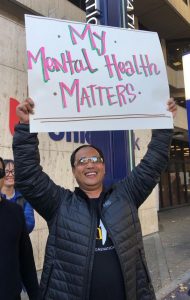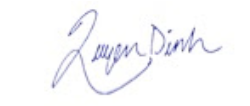May 25, 2021 IN: Our Voices, Staff Blog
Support Southeast Asian American Communities during AANHPI Heritage Month and Mental Health Awareness Month
Dear SEARAC Community,
May marks both Asian American and Native Hawaiian / Pacific Islander Heritage Month and Mental Health Awareness Month. It’s a month that is especially important for a Southeast Asian American refugee community who has spent the last four decades navigating immense mental health trauma, often unaddressed and frequently impacting generation after generation.
This month I think about a community member named Julia, who bravely shared her story about her mental health journey with SEARAC. When she first sought therapy, Julia found herself needing to explain her Vietnamese American culture, without being able to talk more deeply about her challenges.
“I told them about why I thought I was going through these mental health issues,” she said. “They asked me about my family history, and so we started talking about values and what I grew up believing.
The first time, it felt like they weren’t really listening to me and like they thought that my upbringing was really strange.
I think because they found the context that I was describing already disturbing, so we weren’t going to get to the level of being able to talk openly, because they didn’t understand where I was coming from.”
 Our ongoing analysis has confirmed that mental health treatment has been an issue of dire need for SEAAs, well before a global pandemic wreaked havoc on our communities. According to our recently launched Right to Heal report, mental health care is not appropriate and accessible to Southeast Asian Americans unless all areas of culture, intersectionality, intergenerational factors, healing, and language are considered. And results from our recent survey on higher education showed that 58% of respondents—nearly three out of every five students—reported needing health support.
Our ongoing analysis has confirmed that mental health treatment has been an issue of dire need for SEAAs, well before a global pandemic wreaked havoc on our communities. According to our recently launched Right to Heal report, mental health care is not appropriate and accessible to Southeast Asian Americans unless all areas of culture, intersectionality, intergenerational factors, healing, and language are considered. And results from our recent survey on higher education showed that 58% of respondents—nearly three out of every five students—reported needing health support.
Together, we will continue to fight for what we need not to just survive but thrive:
Investment in our community’s solutions and wisdom: holistic, preventative, and restorative.
Acknowledgement of our unique refugee experiences through disaggregated data.
Action toward improving our quality of care, through language access and provider diversity.
Will you join us in this fight to unearth a healing movement? Click here to make a donation to SEARAC.
With gratitude,

Quyen Dinh
Executive Director
SEARAC





